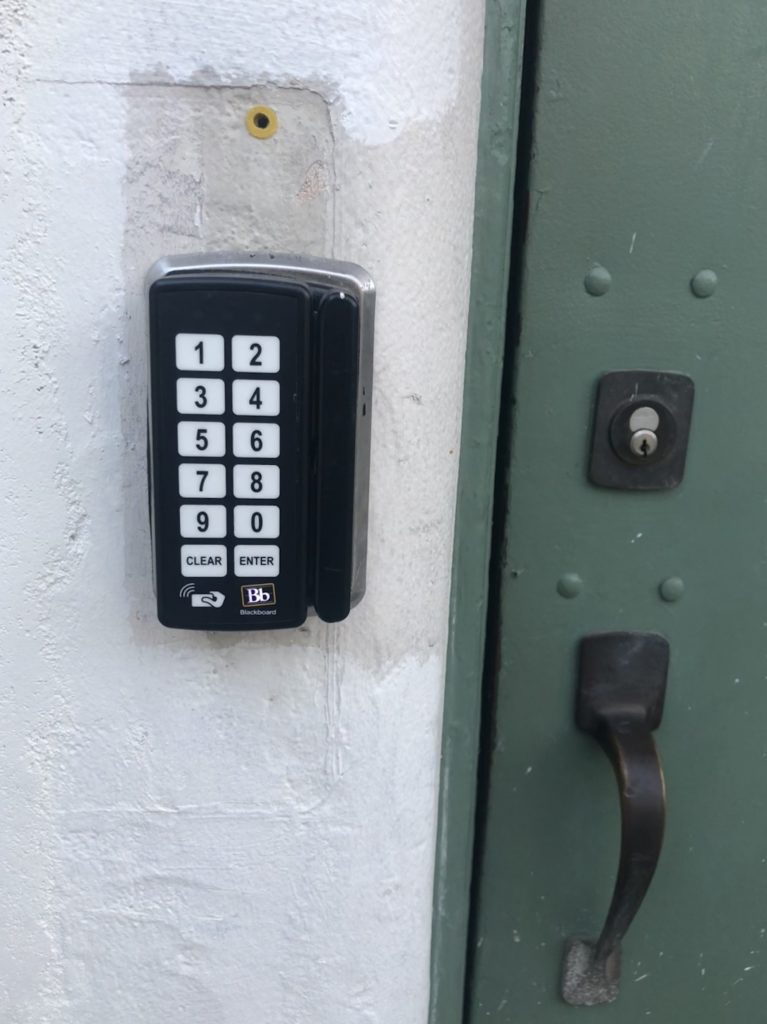Hayley Van Allen, SCR ‘21
Scripps students came back to their residence halls this Fall to a new measure of security: each residence hall was now equipped with a keypad to be paired with the previous swipe access. The new keypads come as an effort to keep the residence halls on campus safer. Last Spring, students received an email about a man who broke into Gabriele Jungels-Winkler Hall (GJW) using a Scripps student ID he had found. With keypads, strangers with lost or stolen ID cards would be unable to use them to enter buildings.
This new method of security, although well intentioned, in reality does not make much of a difference in the actual safety of the residence halls. As many Scripps students can attest, in halls with automatic doors, the doors stay open for a very long time. Students are regularly able to enter the residence halls without even needing to pull out their ID card because the door is still open from the last person to enter the building. The automatic doors in residence halls stay open for nearly a minute every time someone taps – or swipes – their card and punches in their unique 4 digit code.
Not only do the doors stay open for long periods of time, but many students will let people standing outside into residence halls without more than a questioning look. On campus, there is an assumption of safety that leads to many students not thinking or feeling comfortable enough to question people they don’t recognize trying to get into a hall. While Scripps administration has sent out a few emails regarding this issue, most students still do not feel as they are in a position to question every person trying to get into a residence hall. Without finding a better way to change this mindset present among students, Scripps’s efforts to increase security will fall flat.
It is, of course, important to ensure all spaces on campus, especially residential spaces, are accessible to everyone, and so it’s good that the halls have doors that can open automatically. The issue isn’t the fact that the doors can stay open for a period of time, but the fact that they open for every person regardless of need.
If anything, the new keypads make access to the residence halls less accessible. Punching a code in could be anywhere from inconvenient to impossible for people who – for a variety of reasons – suffer from tremors, poor dexterity, weak muscles, or other chronic conditions. By implementing a keypad, residence halls have become less accessible for some people.
A more effective solution to security issues would be to change the way automatic doors on campus open. Each automatic door should have an opt-in that is programmed to individual ID cards, in addition to the activation switch used to open doors. It could be as simple as checking a box on one of the many forms sent to students at the beginning of the year. For students whose ability changes midway through the semester, an email to reslife should suffice in getting their ID reprogrammed. If the ID card of every Scripps student was able to be reprogrammed without much hassle, it should in theory be relatively simple to change the IDs in this way as well.
Overall, the new keypad system in dorms is well intentioned but ultimately makes dorms less accessible and doesn’t fix the more pressing security issues. It’s understandable that Scripps administrators want to keep their students safe; there are just more effective ways to do so.



